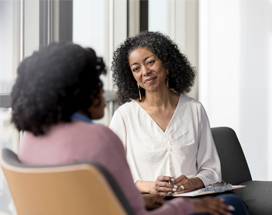Prevention & Safety
Here are some resources to help you stay safe, as well as useful information should you become ill. Remember, most people that get sick get better at home with proper self-care.
Visit the CDC's guide to help you make decisions and seek appropriate medical care.
Do what you can to avoid possible exposure to the virus. Most of these precautions don’t require anything more than what you usually do to avoid the flu, a cold or other common illness. You can find the latest guidance on prevention in your area, here.
COVID-19 vaccines are effective at helping protect against severe disease and death, including variants of the virus that causes COVID-19. For current guidance on vaccination, visit the CDC’s website.
In addition to COVID-19 vaccines, the CDC recommends getting a yearly flu shot. Flu vaccines help to reduce the burden of flu illnesses, hospitalizations and deaths on the healthcare system each year.
It is safe to receive your flu shot and COVID-19 vaccine at the same time.
The country’s primary source of information on coronavirus and COVID-19 is the Centers for Disease Control and Prevention, known as the CDC for short. Their website provides updates on nationwide efforts related to the coronavirus, tips on staying safe, instructions on what to do if you think you may have the virus and more. For more localized information, check the following online resources:
The CDC recommends that anyone with symptoms of COVID-19 should get tested and follow the advice of your healthcare provider. Testing no longer requires an order from your healthcare provider, but the need for an appointment varies by location.
Make sure your medicine chest and pantry are stocked with the items you’ll require for an extended amount of time at home. Don’t forget the proper supplies should you become ill and need to convalesce. You may find you have many of these items already but be sure to check amounts and expiration dates to be on the safe side. It’s recommended that you:
- Have an adequate supply of non-prescription drugs on hand—pain relievers, stomach remedies, cough and cold medicines—as well as other health supplies.
- Be sure you have a working thermometer handy, as well as tissues, lozenges and hand sanitizer should you get sick—whether it’s with COVID-19 or the common cold.
- Talk to family members and determine the best course of action to take should someone get sick. Devising a plan is much easier during times of relative calm. Plus, there’s peace of mind to be had in knowing that, should trouble arise, you’re prepared.
- Have at least a two-week supply of food and water on hand. Explore the possibility of using a food delivery service, if one is available to you. If popular items are in short supply, purchase only what you need so that some will be left for others.
 If you need some assistance coping, don’t hesitate to seek help. CloseKnit provides access to mental health professionals when you need it. Using your smartphone, tablet or computer, you can talk to a licensed therapist or psychiatrist without leaving home.
If you need some assistance coping, don’t hesitate to seek help. CloseKnit provides access to mental health professionals when you need it. Using your smartphone, tablet or computer, you can talk to a licensed therapist or psychiatrist without leaving home.
If you need help now, take a look at some of our Mental & Behavioral Health resources today.